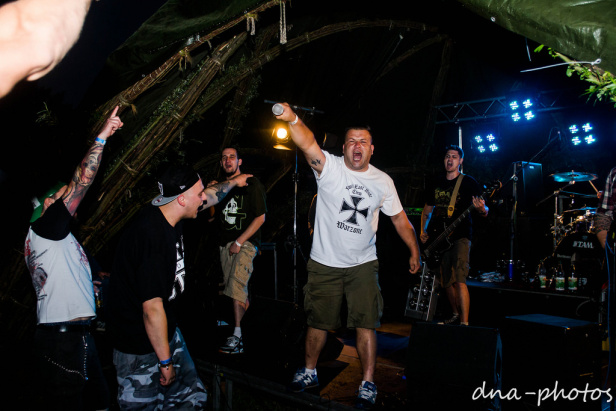Diversity Macht Frei
October 4, 2017
In the recent German elections, the AfD was twice as popular in the east as in the west, with around 20% to 10% of the vote respectively. This has led to a spate of Easterner bashing in the German press. This depiction of the aggrieved urban yokel, unable to come to terms with the modern world, is a now familiar strain of anti-white hate speech.
Here’s a typical example from the Frankfurter Allgemeine Zeitung.
They have been in country for some time now, but the newly arrived still differ significantly from those who have been here longer. They are less successful professionally and earn less. On average, they are less contented with their life situation and insult the Republic that accepted them. Politically, they incline more often towards authoritarian ideas and continue to maintain the customs of their place of origin, sometimes in veritable parallel societies. Astonishingly, the insular tendencies are even increasing somewhat in the second generation. This is a clear sign that something is going badly wrong in the integration process.
We are not talking about German Turks, who once came to the country as labourers. Nor the Russian-German immigrants from the 90s or the Syrian refugees from 2015. We are talking about the approximately 17 million east Germans who joined the Federal Republic on 3 October 1990, all on one day.
East Germans, living in their historic homelands, separated from their ethnic kin for only a few decades, are compared to brown immigrants from the Third World.
In the debate about the integration of the East German, the day of the federal elections was like the Erdogan moment: just as, half a year back, an astonishingly large number of German Turks voted for an authoritarian presidential regime during the Turkish constitutional referendum, so, in the federal elections, a surprisingly large number of East Germans voted against liberal democracy and an open market economy – against the values for the sake of which they wanted to be accepted into the Federal Republic in 1990 and which have since brought them a significant improvement in well-being.
When the new citizens come from a completely different social system, there is a potential for problems. The French already had to find that out with the Algerians, now it’s the turn of west Germans with their brothers and sisters from the East. The disappointed immigrants get their own back by putting the receiving society under moral pressure with the charge of colonialism.
 Daily Stormer The Most Censored Publication in History
Daily Stormer The Most Censored Publication in History



